In Vitro Fertilisation in Germany
Treatment prices are regulated by national law of the corresponding countries, but can also include additional hospital coefficients. In order to receive the individual cost calculation, please send us the request and medical records.

Department of Adult and Pediatric Gynecological Endocrinology, Reproductive Medicine
The Department of Adult and Pediatric Gynecological Endocrinology, Reproductive Medicine offers the full range of modern methods of treating hormonal disorders in women and girls, as well as fertility therapy. The department is one of the few in Germany that specializes in all types of artificial insemination. Important attention is paid to the treatment of endometriosis, which often leads to infertility, uterine fibroids. Also, the scope of tasks of the department’s specialists includes endoscopic procedures aimed at fertility treatment. The treatment concept is developed individually for each patient, taking into account the specific clinical indications.





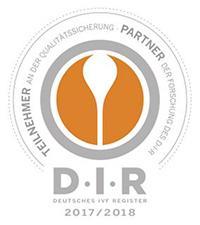

Department of Reproductive Medicine and Andrology
The Department of Reproductive Medicine and Andrology offers the full range of options for the diagnostics and treatment of infertility, hormonal disorders, reduced libido, including erectile dysfunction. The patients receive medical care from an experienced medical team, consisting of highly qualified gynecologists, endocrinologists, andrologists and experts in the field of reproductive medicine. A unique offer of the department is the cryopreservation of oocytes and spermatozoa for planning future pregnancy (for example, in case of somatic pathology or chemoradiotherapy).
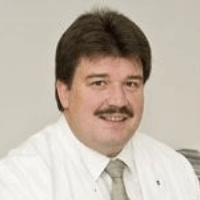





University Hospital of Ludwig Maximilian University of Munich
Department of Reproductive Medicine
The Department of Reproductive Medicine offers the full range of modern diagnostic and therapeutic services in this area and is one of the largest medical facilities of this kind in Europe. The department’s main activities include the treatment of infertility and miscarriages using in vitro fertilization, intracytoplasmic sperm injection, blastocyst transfer, and the use of immunological methods. The doctors working at the medical facility also specialize in treating hormonal imbalances, including menstrual irregularities and polycystic ovary syndrome, which often interfere with pregnancy. The therapeutic offer is complemented by fertility preservation methods, such as egg and sperm cryopreservation. The department's doctors have all the necessary diagnostic options to detect the cause of infertility, which is the main condition for effective treatment. The department's medical team has vast clinical experience, and therefore the specialists successfully cope with even the most complex clinical cases, giving people the opportunity to become parents.





Department of Clinical and Surgical Andrology
The Department of Clinical and Surgical Andrology offers the full range of diagnostics and treatment of various andrological diseases and disorders in men of all age groups. The department specializes in the diagnostics and treatment of male infertility, delayed sexual development, aging-related changes in men, disorders of testosterone synthesis and action, erectile dysfunction, etc. In cooperation with the Department of Gynecology, the department performs a successful treatment of couples with fertility problems.
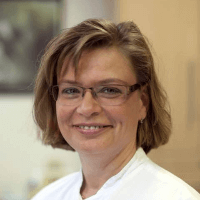




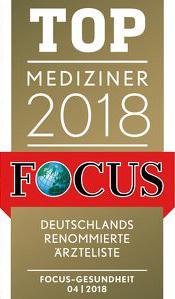
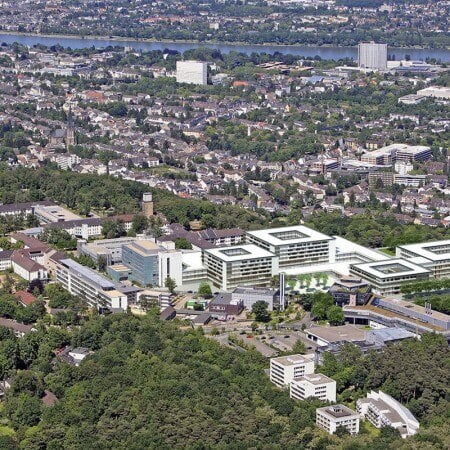
Department of Gynecological Endocrinology and Reproductive Medicine
The Department of Gynecological Endocrinology and Reproductive Medicine offers the full range of diagnostic and treatment services in its areas of specialization. In addition to all standard treatment methods of infertility, the department uses additional diagnostic and treatment methods, for example, polar body biopsy (within the preimplantation diagnostics of genetic diseases), auxiliary hatching, the use of calcium ionophores for egg activation, intracytoplasmic morphologically selected sperm injection (IMSI), etc. The department is one of the leading Centers for Reproductive Medicine in Germany.
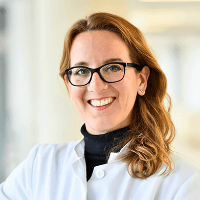


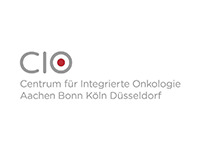

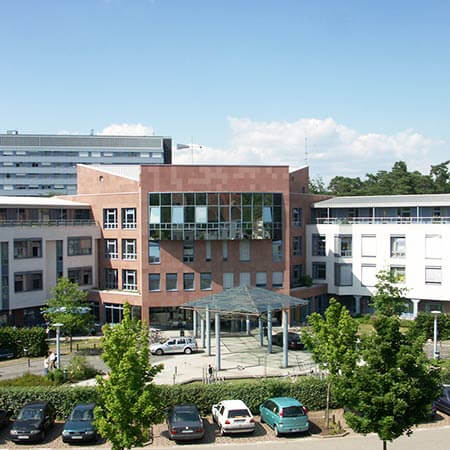
Department of Adult and Pediatric Gynecology, Mammology, Obstetrics, Reproductive Medicine
The Department of Adult and Pediatric Gynecology, Mammology, Obstetrics, Reproductive Medicine provides the full range of services in these fields at the highest level of modern medicine. The department's main clinical activities include the treatment of female reproductive system cancers and breast cancer, endometriosis, uterine fibroids, pelvic organ prolapse, and urinary incontinence. The department admits girls and young women with gynecological problems, including delayed puberty, menstrual irregularities, and recurrent genital infections. The department's doctors have a special competence in the correction of congenital anomalies in the development of the female reproductive system. The team of obstetricians at the medical facility provides pregnancy management, childbirth, and postpartum care for mother and child. The department also offers modern options for treating female infertility. With 94 beds, high-tech operating rooms and treatment rooms, modern delivery rooms, and specialized outpatient clinics, the department has the status of one of the largest and most competent medical facilities of this kind in Germany.
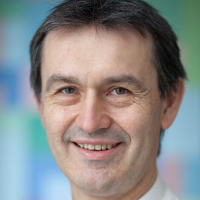


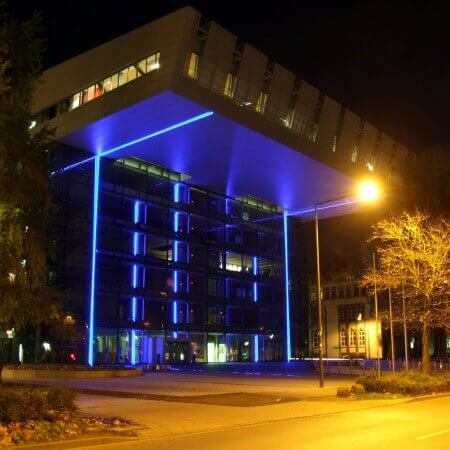
Department of Adult and Pediatric Gynecological Endocrinology, Reproductive Medicine
The Department of Adult and Pediatric Gynecological Endocrinology, Reproductive Medicine offers the full range of diagnostic and therapeutic services in these fields. The department treats all patients with hormonal gynecological diseases. Another priority field is reproductive medicine with various in vitro fertilization (artificial insemination) techniques. Each clinical case is considered individually, after which the most effective treatment regimen is developed. Medical care is mainly provided on an outpatient basis.
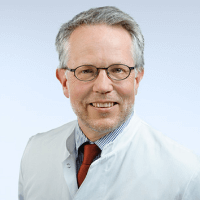

Department of Reproductive Medicine
The Department of Reproductive Medicine offers the full range of high quality medical services in the area of its competence. The department's specialists provide highly effective infertility treatment using the very latest medical advances. The department employs an experienced multidisciplinary team of doctors consisting of reproductive specialists, endocrinologists, gynecologists, andrologists, geneticists, biologists, nutritionists and psychologists. With over 30 years of clinical experience, the department's medical team cures infertility even in cases which are considered hopeless in many medical centers around the world. The department is distinguished by its exceptional competence in the field of in vitro fertilization (IVF) and intracytoplasmic sperm injection (ICSI). The department's doctors pay special attention to the psychological aspect, since infertility often causes depression and apathy in women. Therefore, the department's competent psychologists work with patients. In addition, the department's doctors are always ready for personal communication with their patients, which favorably affect treatment outcomes. The main task of the doctors of the medical facility is to help women to сonceive a child and give her the joy of motherhood.

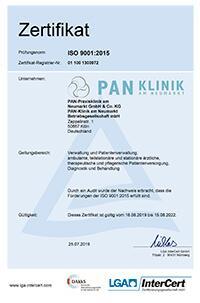
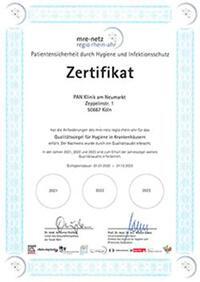
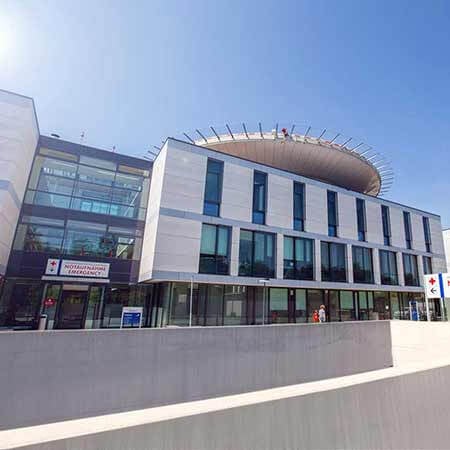
Department of Reproductive Medicine, Adult and Pediatric Gynecological Endocrinology
The Department of Reproductive Medicine, Adult and Pediatric Gynecological Endocrinology offers the full range of services in these focuses and specializes in the treatment of gynecological hormonal disorders in adults and children, as well as in the treatment of infertility. To identify the causes of infertility, both partners undergo a comprehensive diagnosis, after which the optimal treatment method is selected. Therapeutic options encompass conservative therapy and invasive treatment methods, for example, in vitro fertilization (IVF) and intracytoplasmic sperm injection (ICSI).
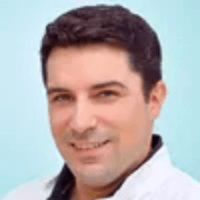
In vitro fertilization (IVF) is a highly effective treatment method for infertility, the effectiveness of which directly depends on the availability of modern equipment and the experience of healthcare specialists.
The main purpose of the German fertility specialists during the infertility treatment is the restoration of reproductive function using advanced IVF technologies and the innovative scientific achievements.
The assisted reproductive technology IVF is the fertilization of an egg with a sperm in vitro (namely, in a test tube), followed by embryo transfer into the uterine cavity.
The introduction of in vitro fertilization (IVF) technique into practice in Germany made it possible to improve the procedure, increasing its efficiency up to 80% and higher. As of today, the rate of successfully performed IVF in German clinics is the highest in the world. According to statistics, every 9th child is born with the help of in vitro fertilization (IVF) in Germany.
Germany is rightfully considered the leader in the sphere of medical tourism, largely thanks to the work of TOP-class specialists, the use of state-of-the-art equipment, close cooperation between research facilities and medical centers, as well as affordable prices. The protocol of in vitro fertilization (IVF) in German fertility centers fully complies with international standards. A well-designed algorithm of procedures for IVF excludes the development of complications.
Infertility treatment in Germany is carried out in medical centers, where all conditions are created for a comfortable stay of patients who will undergo the procedure of in vitro fertilization (IVF). According to the statistical data, about 60,000 patients from different parts of the world come to Germany for infertility treatment annually.
The pregnancy management after successful IVF fertilization has certain specificities. In some cases, after in vitro fertilization (IVF), there is a high risk of miscarriage. As a rule, this is due to the state of the woman's body, the presence of chronic pathologies, poor fertility or other disorders.
Therefore, in German clinics, great attention is paid to the comprehensive diagnostics before the IVF procedure. Before performing in vitro fertilization (IVF) in Germany, an extensive examination of women and men is carried out, including the assessment of fertility. According to the diagnostic results, the treatment tactics is developed for the correction of detected pathologies, which can affect the attachment of the embryo to the uterus (IVF) and the course of pregnancy.
State-of-the-art equipment is used for IVF in Germany, which allows the doctors to maintain the viability of a fertilized oocyte (egg) until the moment of transferring into the uterine cavity.
You can receive information on the costs of infertility treatment by means of IVF from the coordinators of the Booking Health portal, which specializes in the organization of treatment in the best clinics in the world. We provide all the necessary information about the work of German medical centers, the qualifications and experience of German doctors, the IVF success rates.
Booking Health will provide an interpreter for the whole period of stay in Germany, help in visa issuing and the preparation of other necessary documentation.
When is IVF carried out?
In vitro fertilization (IVF) is used for the treatment of infertility caused by the following diseases:
- Endometriosis (endometrial overgrowth outside the uterine cavity, which affects the fertility of a woman)
- Closure of lumen of the fallopian tubes (fallopian tube obstruction)
- Immunological infertility (caused by the production of specific antisperm antibodies in the female body)
IFV is also indicated in case of low fertility in women and men.
Use of donor sperm
For in vitro fertilization (IVF) in the case of male infertility (low sperm activity, poor sperm quality and other reasons), donor sperm can be used in Germany.
Specialized laboratories have state-of-the-art equipment, which allows the doctors to freeze sperm, after which sperm motility is maintained. The specialists have the highest demands for donor sperm for in vitro fertilization (IVF), therefore only the best samples are subject to cryopreservation.
The effectiveness of infertility treatment by means of IVF
In Germany, the success rate of in vitro fertilization (IVF) is much higher than in other developed countries. The first embryo transferring using IVF ends with pregnancy in 80% of cases.
Many factors affect the results of in vitro fertilization (IVF), including the state of the female pelvic organs, the level of fertility, the presence of concomitant somatic diseases, the conditions of embryo preservation, and others.
The tourists from all over the world, who want to undergo IVF, are attracted by the high quality of the IVF procedures, the presence of well-equipped embryological laboratories, the vast experience of German fertility specialists.
How is the IVF procedure carried out?
Infertility treatment using in vitro fertilization (IVF) is carried out in several stages. In Germany, the special attention is paid to a comprehensive examination before IVF, since it excludes possible contraindications and allows the doctors to diagnose disorders in the functioning of the reproductive system, in particular dysfunction of the ovaries, uterus and fallopian tubes. The diagnostics before IVF is carried out for examination of both sexual partners, men and women.
Sperm analysis in men is performed, namely a spermogram, which assesses the fertility of men (number, quality, and activity of sperm cells).
The diagnostics of a woman includes the following examinations:
- Blood tests for detection of infectious diseases
- Assessment of the tubal patency
- Diagnostic laparoscopy (according to indications)
- Hormone panel
- Ultrasound examination
- Female fertility testing
The cost of IVF treatment in Germany rises if an additional examination is prescribed, but patients get the opportunity to undergo comprehensive and reliable diagnostics.
The first stage of IVF: hormonal stimulation
In order to increase the chances of successful in vitro fertilization (IVF), German clinics prescribe the preliminary hormonal treatment. The stimulation of "superovulation" is carried out using hormonal drugs before IVF in order to mature several oocytes during one cycle. Normally, one oocyte (egg) is produced during the natural menstrual cycle. The more oocytes are formed during the cycle, the higher are the chances for successful in vitro fertilization (IVF).
The doctor individually determines the regimen of administration of hormonal drugs before the IVF procedure, namely, develops a protocol. There are several different in vitro fertilization (IVF) protocols, and in order to select the proper one the specialist relies on the diagnostic results.
On average, hormone treatment before IVF lasts from 7 to 20 days.
Extraction of oocytes and their follow-up processing
The next stage of in vitro fertilization (IVF) is the maturation of ovarian follicles and their puncturing. Puncture of the ovary during IVF is performed when the dominant ovarian follicle reaches an acceptable size. The development and growth of follicles are monitored using ultrasound examination.
The puncture is performed under anesthesia, which can be either general or local. The type of anesthesia depends on the particular clinical case. After extraction of the follicular fluid, oocytes are separated under a microscope. The extracted oocytes (eggs) are cultivated in a special environment in incubators until their fusion with sperm.
There are two ways of obtaining sperm for IVF – the natural and surgical ones. The doctors use sperm obtained on the same day when a woman's egg is punctured.
Then oocytes and sperm cells (egg and sperm) are fused in vitro, in a test tube, where fertilization takes place.
Fertilization methods
There are two IVF methods in Germany, such as:
- "In vitro" insemination (several oocytes and sperm cells are placed in a test tube, fertilization occurs within a few hours).
- Intracytoplasmic sperm injection is a technique, which increases the chances of fertilization. The essence of ICSI is the manual injection of sperm into the egg. Special microsurgical instruments are used for fertilization by means of ICSI technique. Due to the complexity of the procedure, the cost of in vitro fertilization (IVF) using ICSI method is several times higher.
After the start of the IVF procedure and fusion with a sperm, the oocyte (egg) becomes an embryo, which is placed from a test tube into CO2 incubators for further development. Embryos for in vitro fertilization (IVF) stay in the incubator for up to 5-6 days, depending on the growth rate. After that, they are transferred into the uterine cavity.
Cryopreservation
For repeated in vitro fertilization (IVF), viable embryos are frozen with liquid nitrogen for follow-up transfer into the uterine cavity.
The diagnostics for genetic disorders (PGD, preimplantation genetic diagnosis) is also performed before implantation during the in vitro fertilization (IVF).
Benefits of IVF in Germany
Choosing infertility treatment in Germany according to modern in vitro fertilization (IVF) protocols, most people strive to receive medical care at the highest level. Germany has long been recognized as the country with the best medicine in the world. Experts from Turkey, the USA and Switzerland come to German clinics to exchange practical experience.
Medical tourists choose in vitro fertilization (IVF) in German clinics for the following reasons:
- High in vitro fertilization (IVF) success rates. Most fertility centers in Germany promise their clients a positive result after the first IVF procedure, in particular, embryo transfer. Therefore, when choosing a clinic, you need to be thoughtful, carefully study the information about medical centers and their specialists.
- German IVF clinics have TOP-class diagnostic and surgical equipment and the best embryological laboratories in the world. All manipulations are carried out with minimal risk to the woman's health and guarantee high chances for the successful in vitro fertilization (IVF).
- Modern state-of-the-art hormonal drugs with a low percentage of side effects are used.
- Highly qualified doctors with extensive experience in reproductive medicine, particularly, in in vitro fertilization (IVF). A competent approach to the problem of infertility provides an opportunity for couples to become parents.
- The elaboration of IVF treatment tactics is carried out on an individual basis in each case. The doctors take care of the health of their patients, carry out the necessary examinations for detection and elimination of any disorders in the woman's body that cause low fertility and prevent fertilization.
Сost of IVF in Germany
The price for infertility treatment using IVF technology is formed according to the diagnostic procedures performed during the preparatory stage, the IVF protocol, hormonal drugs, concomitant somatic pathologies, etc. The cost of IVF treatment in Germany is slightly higher than in Turkey or Poland, but such prices are fully justified by the high quality of services provided and the success of in vitro fertilization (IVF).
You can clarify the cost of treatment by contacting the managers of the Booking Health medical portal. On average, the cost of IVF treatment in Germany is about 4,000 EUR. The in vitro fertilization (IVF) procedure itself costs about 3,000 EUR.
The employees of Booking Health will help you contact the clinic you are interested in, offer the best medical centers, provide support at all stages of the treatment program, and calculate the costs. In addition, they will take care about organizational services, such as booking airline tickets and accommodation, transfer, interpreter, etc.